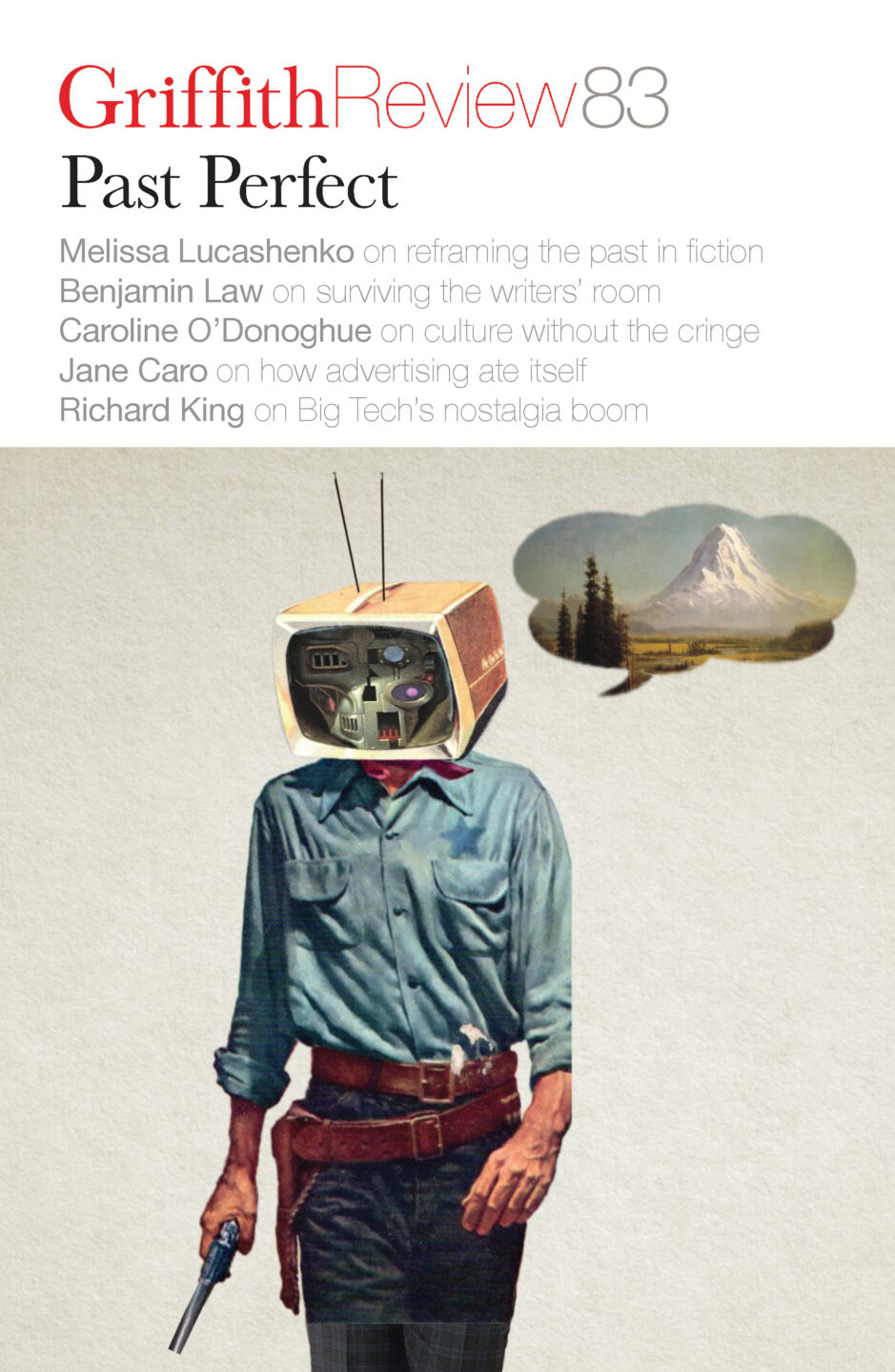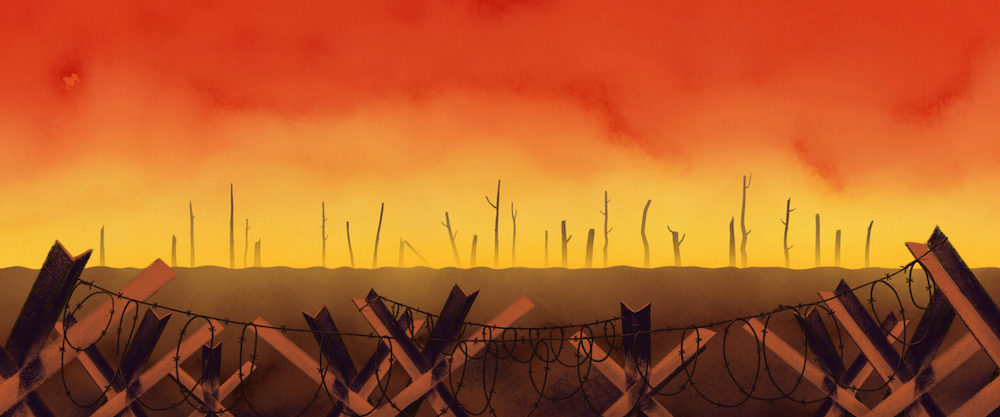Featured in

- Published 20240206
- ISBN: 978-1-922212-92-4
- Extent: 204pp
- Paperback, ePub, PDF, Kindle compatible


Already a subscriber? Sign in here
If you are an educator or student wishing to access content for study purposes please contact us at griffithreview@griffith.edu.au
Share article
More from author

Post-nuclear
MemoirIn this special, festive edition of our summer-reading program, Griffith Review returns to 'Post-nuclear', Benjamin Law's brief and moving treatise on Christmas – what...
More from this edition

Which way, Western artist?
Non-fiction Michael Zavros, Bad Dad 2013, oil on canvas, 110 x 150 cm INSIDE YOU THERE are two wolves. Their names are Mark Fisher and Camille...

Cinema
Poetry I cry in the cinema Or not cry So hard that my head aches with the holding back Not in the film When those beside me weep Manipulated by...

Glitter and guts
Non-fiction RIGHT NOW, I am obsessed with the past. My debut novel is finished and ready for publication, and I am wrestling with the fear...